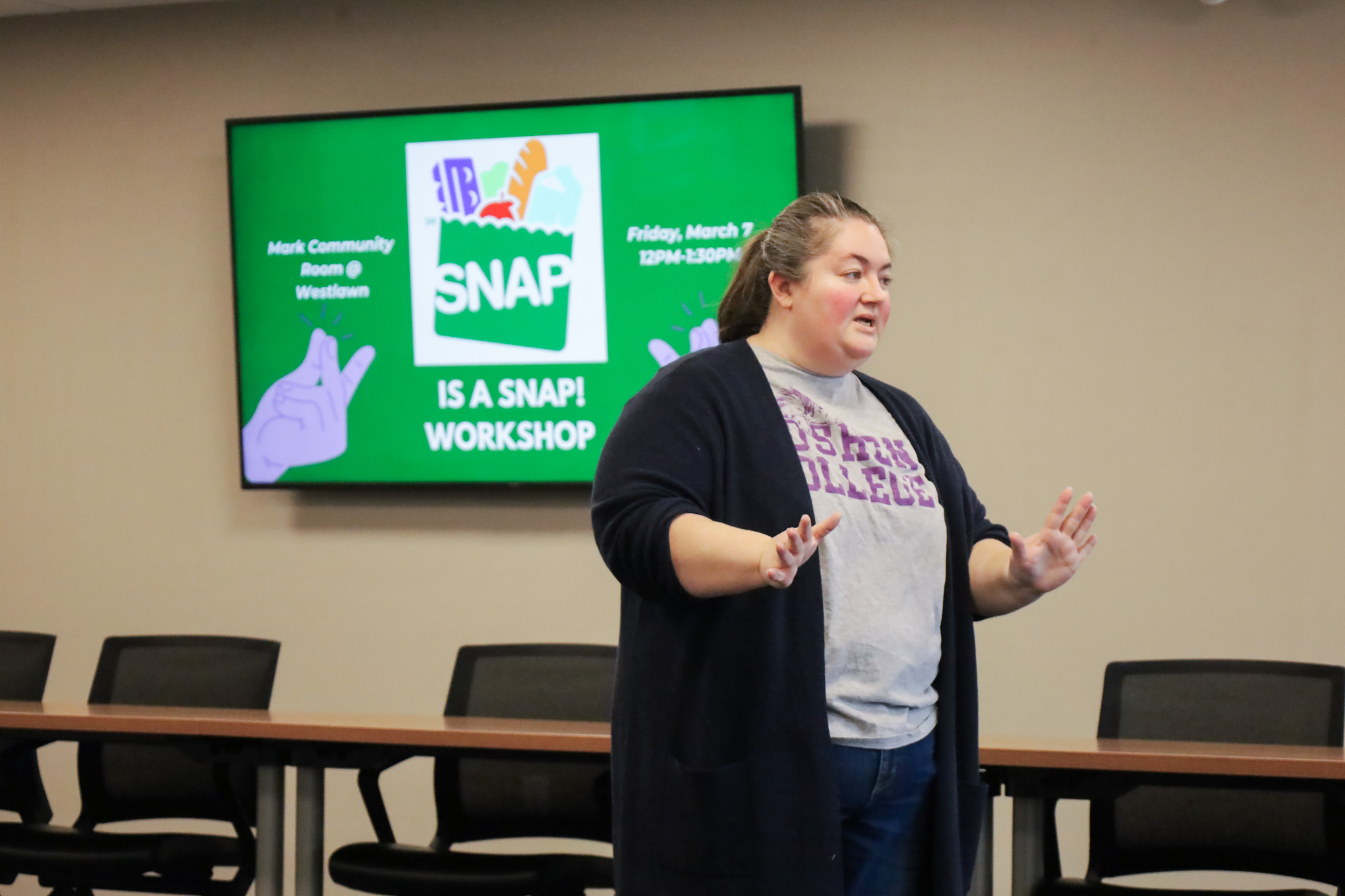This past Friday, Patty Hartshorn and Cristina Reyes, both of Health and Wellness, held a Supplemental Nutrition Assistance Program workshop in Westlawn, offering information and guidance on how to utilize the benefits available for low-income students.
SNAP is a program focused on providing low-income students and families with opportunities to receive food assistance through an online application. To qualify for SNAP, individuals must be enrolled for at least six credits, and meet one of eight conditions, including working 20-plus hours a week, having a disability that prevents them from working, caring for a child dependent or in a work-study.Hartshorn, director of health and wellness and Title IX coordinator, said the importance of hosting this workshop is being able to provide a space in which students can be more readily aware to ask for help while using the resources available.
“The reality is that every student right now is going through that development of learning how to be independent, learning how to self-advocate, learning how to ask questions when they need something,” she said. “[They are] learning how to find transportation resources, learning to find things that make budgeting a little bit easier or getting food resources or whatever it is.”
According to the SNAP pamphlets, 3.3 million college students were potentially eligible for SNAP benefits, 67% of whom did not receive any. SNAP is also a part of WIC, which is a program that offers support for women, infants, and children, providing the same benefits.
“You have students who are taking care of family members who maybe have children, etc, that are impacting their experience. So those things may help them qualify as well,” Harthorn said. “Anything that we can do to help students identify if they’re eligible.”
Sara Nunez, a first-year biochemistry major, was present at the event. “I kind of struggle a little because I live with my dad — like a single dad. He recently actually got fired from his job because of an issue he had, so I was wondering if maybe … I could get some help with it,” she said.
A significant factor in hosting this event was to walk students through the sign-up process. “I actually did try to do it myself before, but it was a little complicated to manage through the website,” Nunez said. “They really did help me with not only accessing it but navigating through it … It was very quick, very easy. I feel very relieved.”
Lindsey Graber, a junior English major and peer wellness educator, said that this program is pretty important for students to look into, especially for upperclassmen who don’t depend on a meal plan, do not have a reliable form of transportation or cannot afford it.
“[Students] could be getting groceries for free or for cheaper than what they are now, and I think that that’s a really beneficial thing that people don’t realize that they have access to, and might overcome some barriers to being able to have more nutritious meals and not just having to eat ramen all of the time.”



